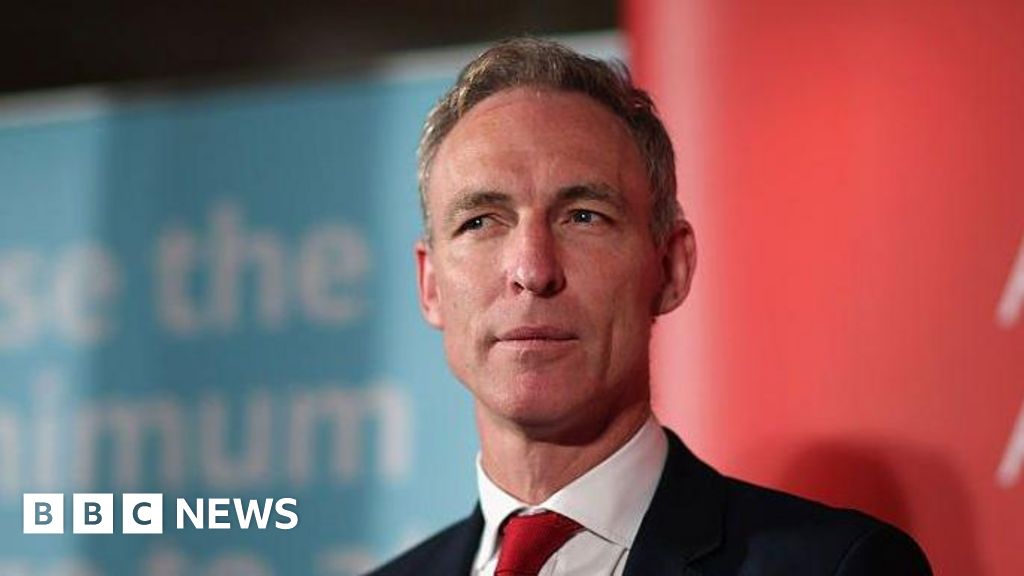Jennifer MeierhansBusiness reporter

 Getty Images
Getty Images
A report has outlined major changes needed to get the hundreds of thousands of "economically inactive" people in Britain into work and prevent more from leaving employment.
One in five working age people are out of work and not seeking work, according to the review by former John Lewis boss Sir Charlie Mayfield.
Tackling this problem should be a "shared responsibility" between employers, employees and health services, it concluded.
But what changes are being suggested? The BBC has spoken to bosses, workers and GPs about some of the challenges posed by the Keep Britain Working review.
Employer budgets already squeezed
"Employers will need to do more," the report states.
They need to prevent people from leaving the workplace in the first place, support people back into work, and remove barriers for disabled people, it says.
But many businesses argue they don't have the money to invest after employer National Insurance Contributions (NICs) and minimum wages increased in April.
When it comes to helping employees with health issues, some small businesses may not have HR departments or staff with that specialist training. One small business owner told the BBC the report findings were "spot on", but any action that follows needs to be "practical and realistic".
Tina McKenzie, policy chair at the Federation of Small Businesses, said firms it represents already make a "huge effort" towards workplace health.
"It is only by backing small firms to grow that we can recover and expand employment levels," she said.
It's a view echoed by Kate Nicholls, chair of UKHospitality, who said the report's recommendations need to be "taken in tandem with a concerted effort at the Budget to reduce the sector's tax burden".
She says the lack of money to invest "is one of the primary barriers to hospitality fulfilling its potential to employ more people and support people back into work".
'Where do you draw the line?'

 Dunster Farm
Dunster Farm
Hannah Barlow says changes need to be practical and realistic
A healthy workforce is also good for employers, who lose on average £120 per day in profit from sickness absences, which are at a 15-year high, according to the report.
Hannah Barlow runs food business Dunsters Farm employing 200 people in Bury, North Manchester - where Sir Charlie visited while compiling the report.
The report proposes "a fundamental shift" from health at work being "largely left to the individual and the NHS" to a shared responsibility between employers, employees and health services - which Ms Barlow welcomes.
"It currently relies on the employee to do something but they aren't in a good place, they can't physically and mentally engage in those conversations. If there was employer-led signposting to the help they need that would be a massive relief."
But she said small businesses did not have "an endless pot of money" to invest in occupational health needed from a rise in adults being diagnosed with conditions such as autism and ADHD.
"How can we help them and where do you draw the line?" she asked.
She said in some cases it was not always practical to keep staff with health problems in work.
"You might have people waiting for over a year for a hand or knee operation," she said. "The majority of our roles are in a warehouse lifting goods or driving trucks, there's not really an alternative role for them to be doing."
'Dumping this on employers'
Adrian Hanrahan runs chemicals manufacturer Robinson Brothers in the West Midlands and employs 180 people.
He told BBC Politics Live he goes "over and above" to help staff with long-term sickness and mental health issues.
"You're bringing in temporary staff, so all of this adds up, so it's in our interests to actually get people back to work," he said.
But he felt like the government was "dumping all this back on to employers".
"When do the employees take responsibility for their own actions and responsibilities? He asked: "When are we going to get a report on that and look at what are the key drivers as to why people are electing not to go back to work?"
Personal responsibility


Katie Livings says asking for adjustments helped her find work while managing her health conditions
The rise in sickness is being driven by a "surge" in mental health issues among young people and muscular skeletal issues, aches and joint pain in older people that is leading them to leave work.
But the report put an emphasis on employees' "personal responsibility", warning: "Disengaging from work and potential support, or relying on welfare as an alternative to work, can set people on a path towards detachment and dependency, rather than recovery and participation".
Katie Livings has chronic fatigue syndrome which causes exhaustion, headaches and sensitivity to light. She also has an inflammatory condition which affects her joints.
"The pain can be so severe I can be left completely bedbound and if that happens I can't work and have taken long periods of sick leave," she told the BBC.
When she graduated from university she worked in a call centre but "ended up taking sick leave and then having to resign in a very short space of time".
She turned to disability charity Scope for help in finding a new role as a legal assistant by asking for some workplace adjustments.
"I asked for part-time and the roles were reduced on that basis for me that was the big reason I was able to go back into work," she said.
"Having access to an ergonomic chair, keyboard and mouse means I can stay in work longer," she said. Ms Livings is also able to take regular rest breaks and attend medical appointments often at short notice during the day.
She said being able to ask for changes was "empowering" and "allowed my health condition to improve". She has since progressed into a paralegal role.
The Equality Act 2010 already requires employers to make "reasonable adjustments" for disabled people to prevent them from being at a substantial disadvantage.
Clash with employee rights bill
Some business groups have pointed out a "clash" with the Keep Britain Working report and the Employment Rights Bill due to take effect in two years.
The proposed new law includes a right to guaranteed hours and cracks down on zero-hour contracts without the offer of work.
Helen Dickinson, chief executive of the British Retail Consortium said the review and bill were "at odds with one another".
"In its current form, the Employment Rights Bill would make it harder for retailers to continue offering as many crucial flexible roles."
Ms Nicholls at UKHospitality which has been working closely with Sir Charlie said "unless its carefully managed there is a clash".
She said in its current form the Employment Rights Bill proposed workers were offered guaranteed hours based on an average they had done over a 12-week period.
"If we are providing supported pathways back into work or employing people with ill health and mental health issues the key is flexibility.
"Some weeks they can do eight hours, some weeks 40 hours, some weeks none," she said.
Mr Hanrahan from chemicals manufacturer, Robinson Brothers said he "completely objected" to day one rights.
"It's so difficult to try and recruit people in the first place, the hoops we have to jump through, the questions we're not allowed to ask.
"Normally you have a probation period, in our company it's six months, and now we're saying day one rights. There's a big disconnect between what you're asking of us and reality.
"It will stop us employing more people because the risk of taking someone on and giving them day one rights that's high risk, very high risk."
Fit for work notes
Some 93% of fit notes in England deem the patient "not fit for work," and "are often extended without further consultation", the report said.
But GPs say they find it difficult to judge whether or not a person is suitable to work while they are ill, but are asked to issue sick notes by patients themselves.
The report has called for a fit note reform and recommends the widespread adoption of a Workplace Health Provision (WHP).
It would be a non-clinical case management service funded by employers to support employees and line managers
Professor Kamila Hawthorne, chair of the Royal College of GPs, said the responsibility for longer-term fit notes could be transferred from GPs to more specialised professionals.
"However, it is the College's view that GPs and our teams should still have the option to continue to issue short-term (up to 3 weeks) fit notes and retain some involvement in longer-term care and oversight of patients' overall health, where appropriate."
She said any reform "must be in the best interests of patients" adding "this process should never be punitive in nature."

 2 months ago
63
2 months ago
63

















































